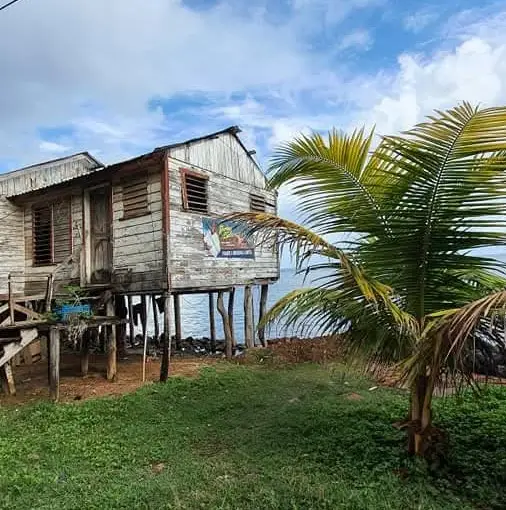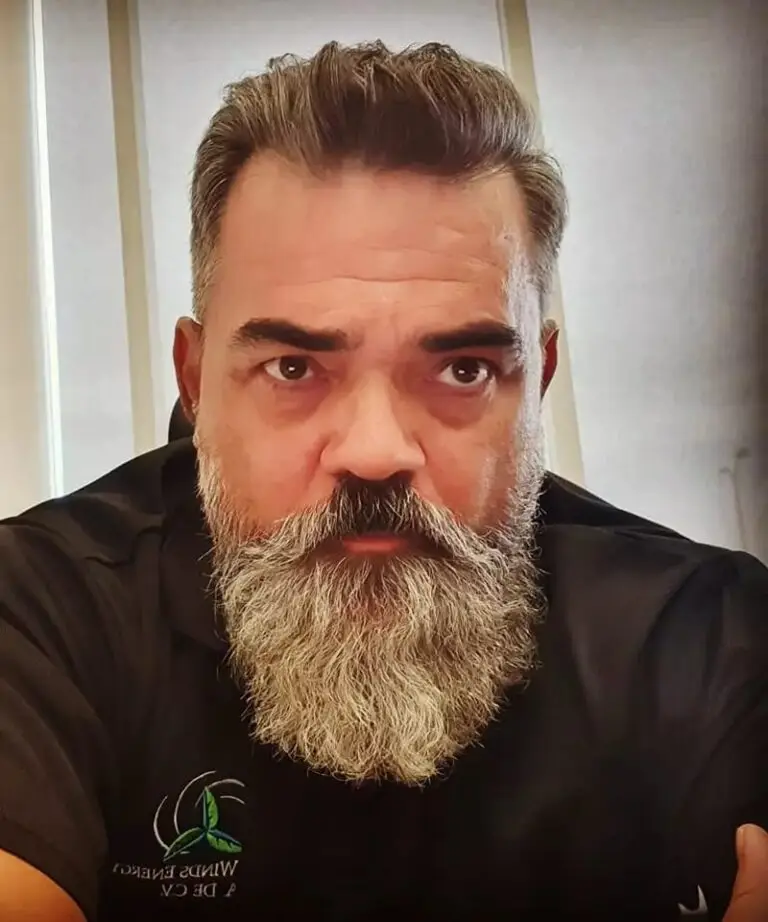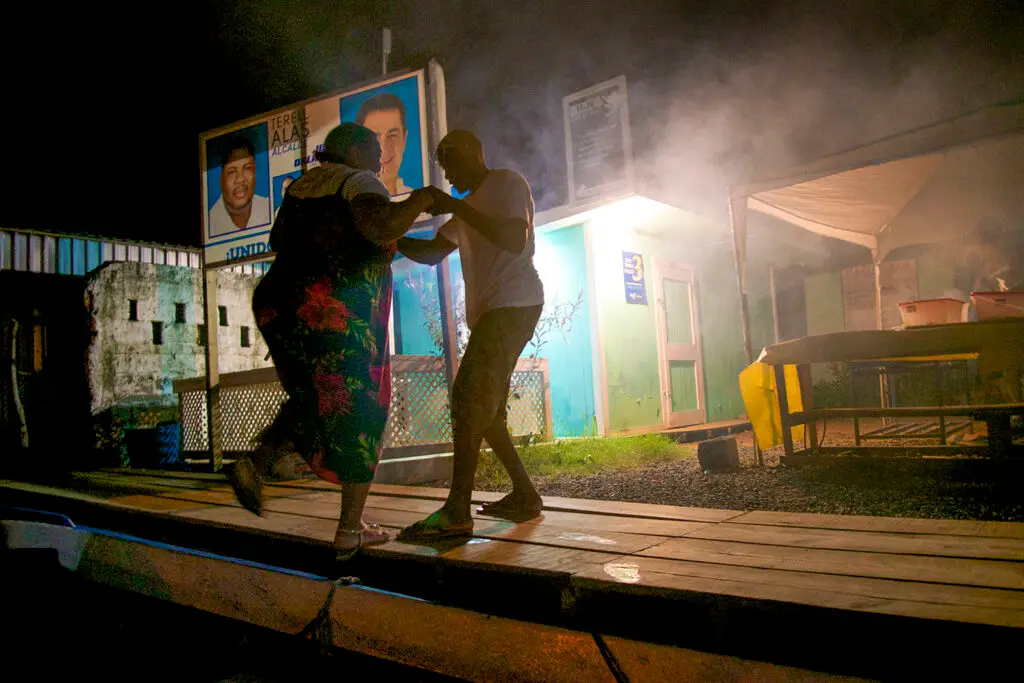
When I first came to live on Roatan in the mid 80’s national politics was considered by Bay Islanders in much the same way a football game was , Blue ( National Party –Partido nacional ) versus Red ( Liberal Party – Partido Liberal ) ……….” So and So is a big blue ( or a big red “. The carnival atmosphere that surrounded political campaigning was known as “ Partido time “. Once in a while a Presidential candidate would show up and speak in a language and using phrases that not many Islanders understood the meaning of ( at that time less than 10% of the 10,000 population in the Bay islands had more than a sixth grade education and had a basic grasp of the Spanish language ) ; the small Spanish settlements of Juticalpa , Spanish Town and Corozal were too small for politicians to be bothered with. ‘Partido Time’ was a time associated with ‘rope’ , free fried hog , beers , candidate caps and T-shirts. No one cared about politician’s promises since they were rarely fulfilled.

Fast forward 40 years and the demographic is much changed. The 10,000 population is now 100,000 and English speaking Bay Islanders are quite probably in the minority ( depending on who you talk to ). Prior to the 1990’s development boom the majority of Bay Islanders were descendants of the second ( Garifuna 1797 )and third ( British via Cayman and Belize in the 1830’s ) permanent settlers of the islands( the first being the Pech 400 to 1600’s) ; beginning in the 1990’s with the demand for skilled and unskilled labour an influx of mainlanders came over , bought land , built communities and produced the first ( second and now third ) generation of English speaking mainlanders with the ID numbers beginning with 1101 , 1102 ,1103 and 1104.They knew the language and the laws and brought with them strategies of land invasion . Their astuteness helped build large well run communities such as Barrio Los Fuertes , Policarpo , El Bight , Camponado and Mitch with voter blocks of around 10,000 in the large ones such as Policarpo ( Sandy bay ) and Los Fuertes ( French Harbour ). Politicians now prioritize the Spanish speaking communities during campaigns since this is where the voters are , English communities are now not the priority. A perfect example is the neglected island of St. Helene where , during the past 8 years has not benefitted from any municipal projects at all ; the population recently turned their backs on political candidates during a primary election visit. The old Bay Islander dream of freedom from the mainland and indeed autonomy is fast dwindling and indeed if it is a distant possibility then it would now have to include the 1990’s mainland settlers as equal partners.
And……. while the population was growing exponentially over the last 30 odd years , so has development and with it a concerning impact and risk to three facets of Bay Islands existence. Firstly , the environment ; huge swathes of lush green hillside have been carved away by ‘fly by night’ developers merely concerned with making a quick return and leaving. I was recently up in Camp Bay having a sandwich at a new café and while waiting for my meal , I thumbed through a sales brochure that the developer left there . One of the photographs showed an island which definitely was nowhere here in the Bay islands , closer examination revealed it to be Malapascua in the Phillipines. It saddened me that a developer who has been welcomed here to do business , torn down acres of hillside ( our heritage ) only to dupe buyers into thinking Roatan was somewhere else. No love for the island at all which is , I suppose , why the total destruction happened in the first place. How was it allowed to happen ? Where were the authorities ? It is an unspoken secret that local political leaders were given a bite ( moridida ) to turn a blind eye. Leaders who would rather benefit from a few thousand dollars today and sell out their birthright for generations to come. If this keeps up in another 10 years we will live in a dustbowl with no water resources.
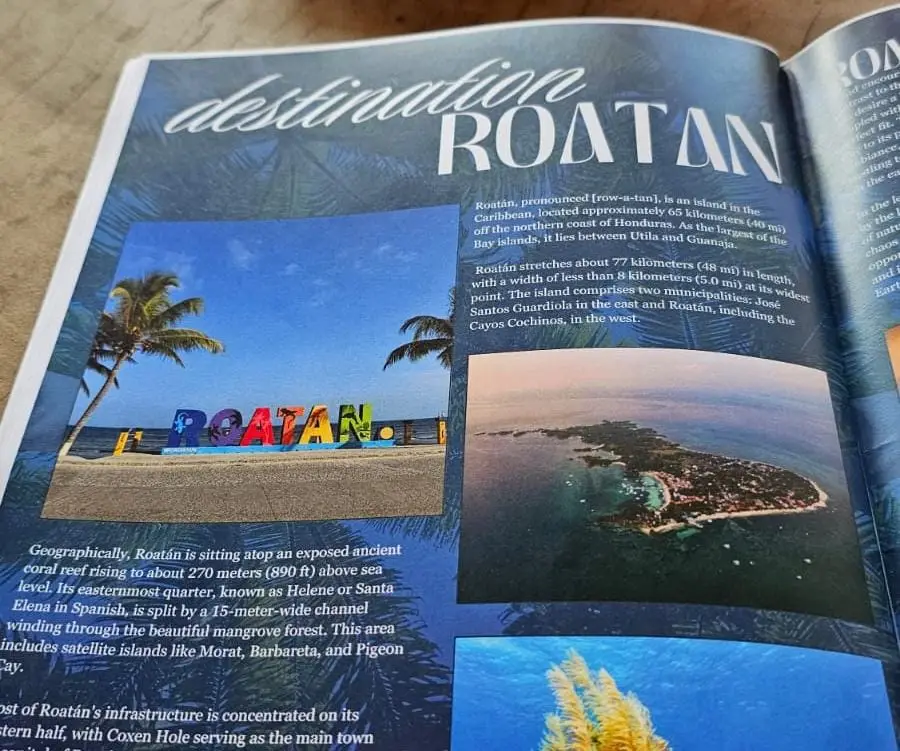
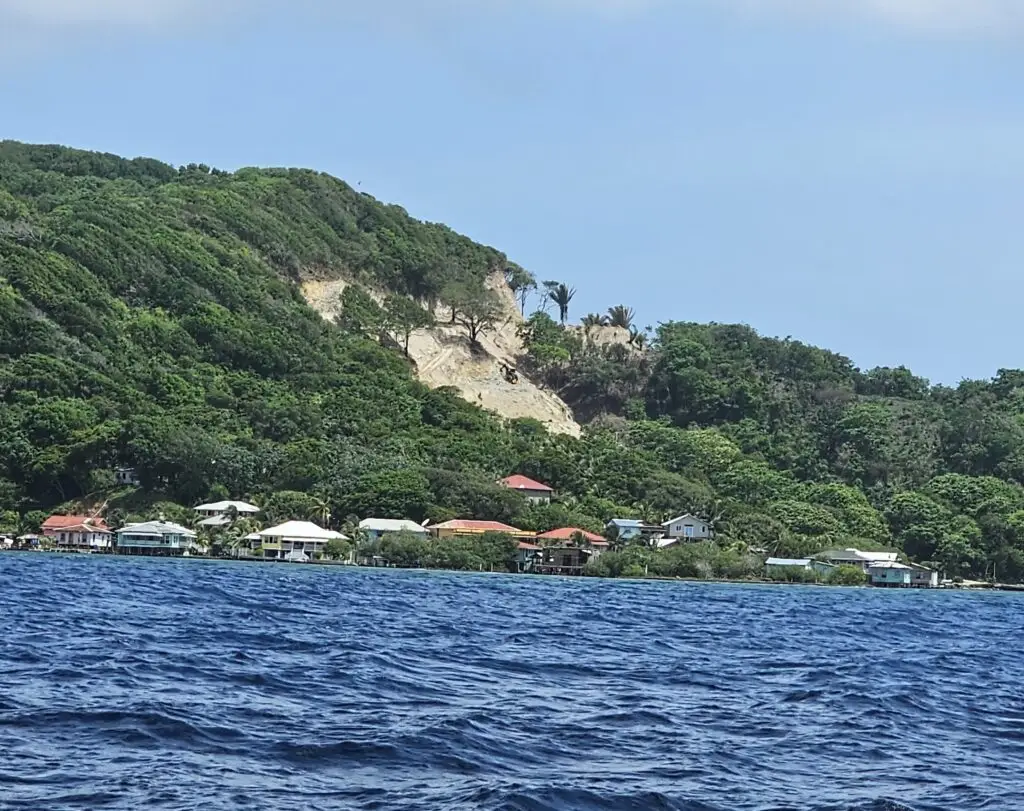
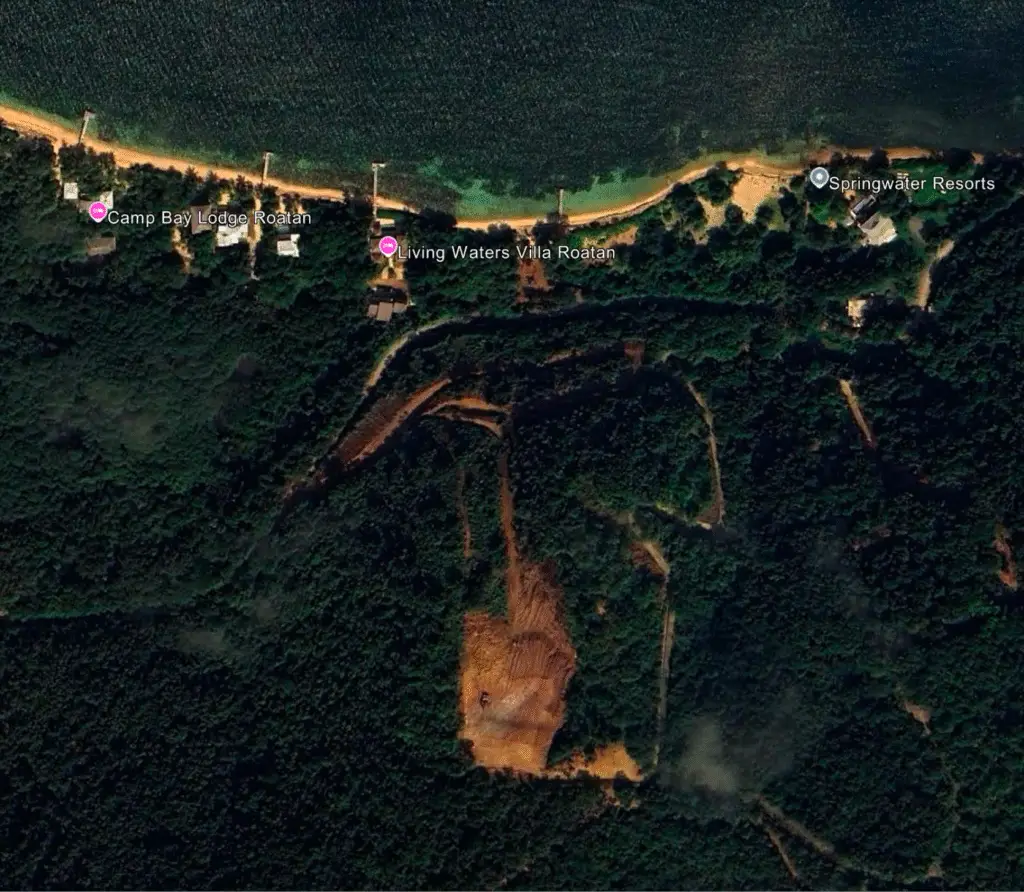
The Second impact is on the Anglo Bay Islander ( creole ) culture , History and language . Unique in itself in as much as it has taken from the British ( English , Scottish and West Indian in particular ) culture as well as traditional Caribbean but actually come up with some of its own contributions unique to these Islands ; the sweet dish ‘Corn Rice’ being a perfect example. Sadly the amount of people who know how to make ‘corn rice’ , a traditional ‘run down’ or coconut bread from scratch are few and far between. Young people nowadays are more attracted to mainland dishes like ‘pollo chuco’ , tacos and lured into eating fast-food fried chicken and pizza instead of preparing and eating traditional dishes and pastres . Maypole and plait pole events are scarce and rarely observed or not done in the traditional way. Island calypso music using home made instruments ( washboard , spoon drums and handsaw with a bow ) has disappeared completely. The pure creole English spoken in the Bay Islands ( which varies from community to community ) is being watered down and in many cases pushed out and replaced by Spanish. According to Ross Graham , a linguist who wrote his Phd thesis on Bay Islands English , the Creole spoken here is unique and worthy of preservation. I have been saddened on several occasions watching an interview on local news channels with a Creole ( English ) interviewer and an another Creole and they are speaking Spanish !
History is being neglected as well , I recently was sickened to see that a developer had been allowed to build a road ( cut and fill ) right through the Historic British fort at Augusta in Port Royal with no consideration for what lay beneath. Why were they given a permit to do this in the first place ? This site and others in Port Royal and dotted around places in the Islands are impressive and have to be preserved. I maintain that the Bay Islands have a deeper history and way more historical places of interest than our northern sister Islands , The Caymans. The Garifuna , it is worth mentioning have been more resilient in preserving their culture mainly due to the priority they place on ancestral traditions as well as the strength within the Punta Gorda community and little mixing with mainlanders and English speaking Creoles. Punta Gorda main street has been transformed into a tourist mecca and a textbook example of sustainable tourism and opportunities through cultural and historical preservation ; a few miles East in Pandyville , the English creoles have a golden opportunity to do something similar if only they were given a hand and pointed in the right direction.
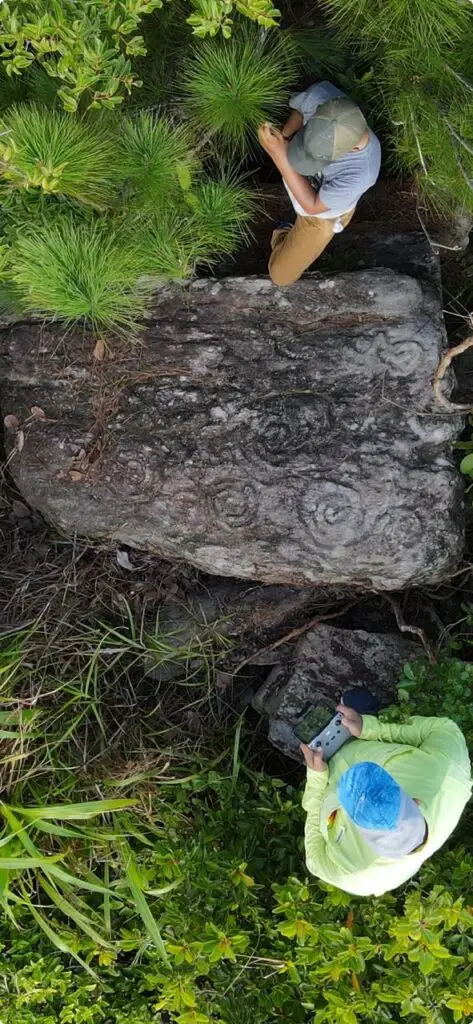
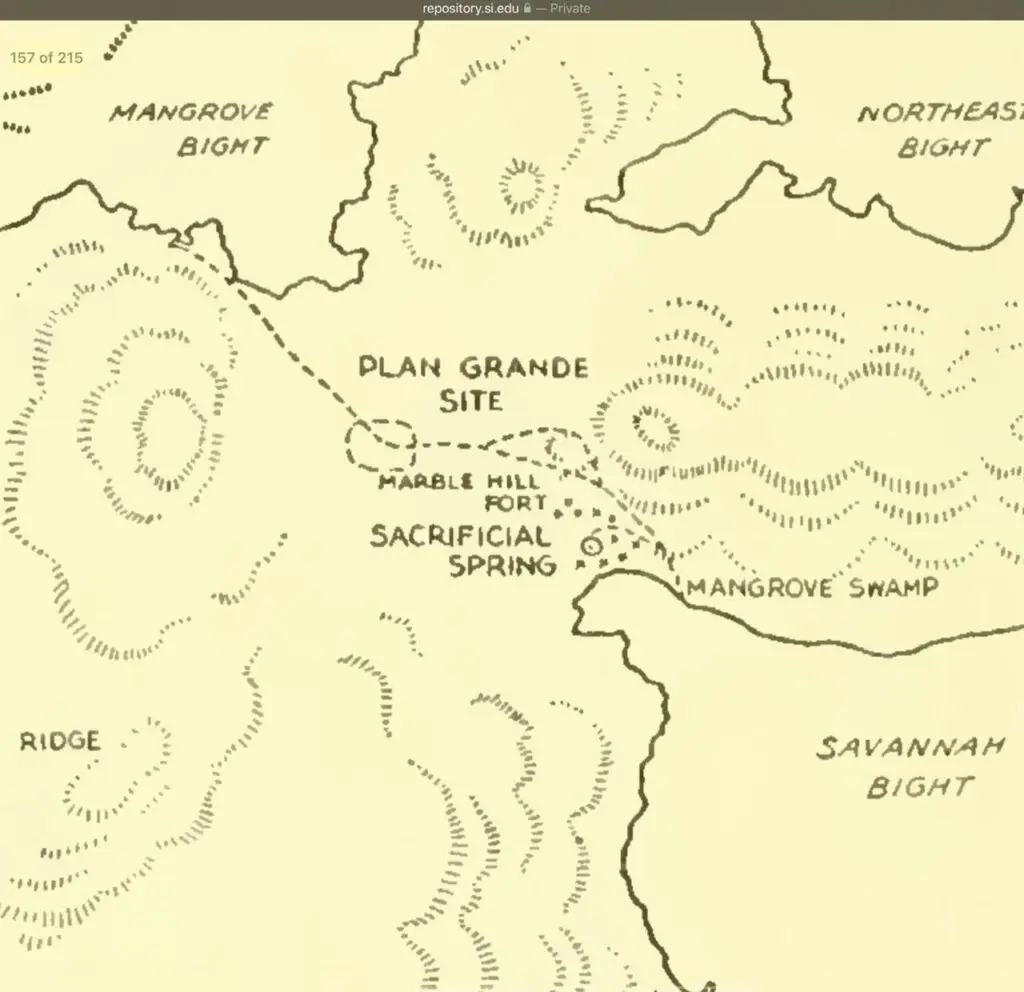
Third impact point is the lack of loyalty to the local economy . Significant Projects on the Bay Islands are being designed and built by Engineering and construction firms from the mainland who have operating permits from mainland municipalities while the local firms who have long established permits are being squeezed ( some would say extorted ) for unsustainable fees and taxes. The local authorities by turning a blind eye to mainland firms coming in are encouraging an influx of firms who have no affinity for the island and just see it as a fertile ground ready to exploit while the established Island companies will always be here and have a vested interest in sustainable development . When charities come knocking at doors looking for donations it’s the local firms who are always around to chip in. The mainland firms support mainland charities and social projects.
In conclusion , these Bay Islands are at a turning point environmentally . Creole-English Bay islanders , as a group , are in crisis and oblivious to what is going on around them. The Honduranization of the Bay Islands is in full swing and without knowing it our local government leaders in all four municipalities and in congress are facilitating the decline of a culture and are paving way to the destruction of an environment and the gradual erasure of a culture and its history. It is now imperative that voters get pro-actively involved . And how can the voting public get involved and do about the present dire state of affairs ? Well , a few things :
- There needs to be action by us ( the voters ) by asking the questions of the political leaders and holding them accountable. We need to ask them what the procedure is for developers to acquire projects and to hold them accountable for making sure projects are managed correctly with appropriate oversight measures in place. Each community council or Patronato should be able to have the confidence to question why apparently damaging projects are being allowed.
- Political candidates should be asked what they plan to do about stimulating economic growth for businesses and entrepreneurs wanting to start small tourism concerns such as the Creole village in Pandyville I mentioned above. They should also be asked what they will do about reviving and preserving the Creole way of life through workshops and incentives to bring it up to where Punta Gorda and the Garifuna are.
- Voters need to get out of the partisan politics mindset that is sinking us in to a swamp of conformism. Same old , same old will not save us from ourselves. Vote for the candidate even if he is not well known if he/she answers the tough questions with reasonable and logical answers , they are the candidate.
- Citizens need to put fear aside and start pushing back against unfair taxation ( local and government ) and injustice .
And what can be done by the political leaders ?
- Seek and listen to advice . Gather a think tank of age and experience and ask them what concerns them and how they would go about it. Put Culture , History and local commerce as a priority. Create 5 , 10 and 20 year workplans with clear objectives
- Ensure a sound , consistent teaching of Bay Islands History through collaboration with Regional Education Representatives.
- Appoint a Cultural City Manager and an Historical City Councillor as full time employees and give them the support they need.
- Make a pledge to put the love of the Islands before any personal or financial benefit by thinking what sort of place we will leave for our children and generations to come.
- Reach out to international ONG’s who have not only funding available but also expertise for sustainable tourism projects.
- Join forces with other Bay Islands municipalities to lobby for more autonomy from Federal government ( Gobierno Central )
It’s not too late yet but let us look further than the end of our noses and plan for the next generations so that they inherit a Bahamas rather than a Haiti.
